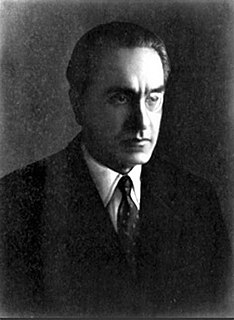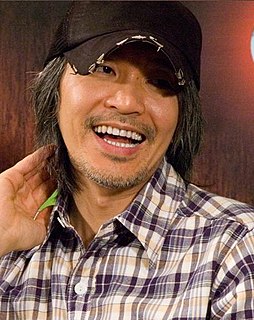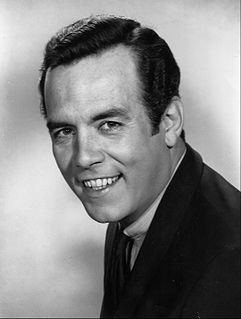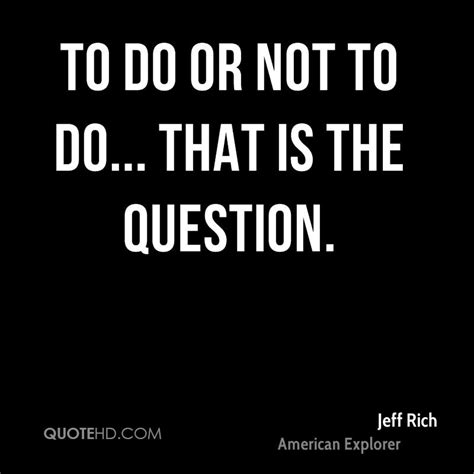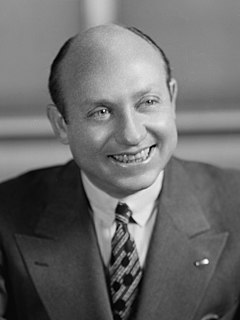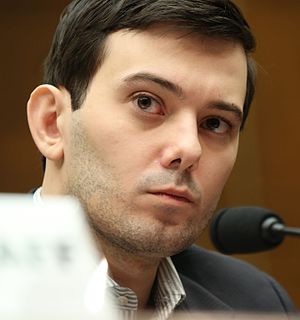Top 1200 Profit Maximization Quotes & Sayings - Page 3
Explore popular Profit Maximization quotes.
Last updated on April 15, 2025.
There can be no freedom of the individual, no democracy, without the capital system, the profit system, the private enterprise system. These are, in the end, inseparable. Those who would destroy freedom have only first to destroy the hope of gain, the profit of enterprise and risk-taking, the hope of accumulating capital, the hope to save something for one's old age and for one's children. For a community of men without property, and without the hope of getting it by honest effort, is a community of slaves of a despotic State.
Capitalism as a social order and as a creed is the expression of the belief in economic progress as leading toward the freedom and equality of the individual in a free and open society. Marxism expects this society to result from the abolition of private profit. Capitalism expects the free and equal society to result from the enthronement of private profit as supreme ruler of social behavior.
This is business: they don't care about your lyrics;
The better you sell, the better future for their children.
Controversy sells, so they support conflict,
Makes more progress, means more profit.
An artist gets killed, they say they're 'so sorry,'
Meanwhile, they tell you the date of his next project.
What a life...death made them more profit:
Record companies get paid for your drama.
Now, it is sometimes said that medical care is too important to be left to the market, and that it is immoral to profit from the illnesses of others. I say medical care is too important to be left to the failed central plans of the political class. And as for profiting from providing medical care, we can never be reminded enough that in a free society, a profit is a signal that valuable services are being rendered to people on a voluntary basis.
Love the quick profit, the annual raise,
vacation with pay. Want more
of everything ready-made. Be afraid
to know your neighbors and to die.
And you will have a window in your head.
Not even your future will be a mystery
any more. Your mind will be punched in a card
and shut away in a little drawer.
When they want you to buy something
they will call you. When they want you
to die for profit they will let you know.
The "non-profit" institution neither supplies goods or services not controls. Its "product" is neither a pair of shoes nor an effective regulation. Its product is a changed human being. The non-profit institutions are human-change agents. Their "product" is a cured patient, a child that learns, a young man or woman grown into a self-respecting adult; a changed human life altogether.
Readers may be divided into four classes: 1) Sponges, who absorb all that they read and return it in nearly the same state, only a little dirtied. 2) Sand-glasses, who retain nothing and are content to get through a book for the sake of getting through the time. 3) Strain-bags, who retain merely the dregs of what they read. 4) Mogul diamonds, equally rare and valuable, who profit by what they read, and enable others to profit by it also
Prior to the advent of the civilization of the Third Estate (mercantilism, capitalism), the social ethics that was religiously sanctioned in the West consisted in realizing one’s being and in achieving one’s own perfection within the fixed parameters that one’s individual nature and the group to which one belonged clearly defined. Economic activity, work, and profit were justified only in the measure in which they were necessary for sustenance and to ensure the dignity of an existence conformed to one’s own estate, without the lower instinct of self-interest or profit coming first.
Artists are just entrepreneurs. It's up to them to figure out how or if they can make a monetary profit from their passion ? from their calling, as I discussed above. Sometimes they can. Musicians can sell music, even in the face of piracy. Or they can sell their services ? concerts, etc. Painters and other artists can profit in similar ways. A novelist could use kickstarter for a sequel or get paid to consult on a movie version.
Capitalism may even be identical with the restraint, or at least a rational tempering, of this irrational impulse. But capitalism is identical with the restraint, or at least a rational tempering, of this irrational impulse. But capitalism is identical with the pursuit of profit, and forever renewed profit, by means of continuous, rational, capitalistic enterprise.
Barack Obama is telling the banking industry what it can and can't charge and what profit he will accept and what level of profit he won't accept. Bill Clinton and Jimmy Carter came up with this scheme that resulted in the subprime mortgage crisis. They said it was unfair that poor and minority people didn't have houses, so we're basically gonna give 'em houses. How are we gonna do that? We're going to make the banks loan them money, knowing full well they can't pay it back.
There is no worse material poverty than one that does not allow for earning one’s bread and deprives one of the dignity of work. Youth unemployment, informality, and the lack of labor rights are not inevitable; they are the result of a previous social option, of an economic system that puts profit above man; if the profit is economic, to put it above humanity or above man, is the effect of a disposable culture that considers the human being in himself as a consumer good, which can be used and then discarded.
The failure and the success both believe in their hearts that they have accurately balanced points of view, the success because he's succeeded, and the failure because he's failed. The successful man tells his son to profit by his father's good fortune, and the failure tells his son to profit by his father's mistakes.
There has grown up in the minds of certain groups in this country the notion that because a man or corporation has made a profit out of the public for a number of years, the government and the courts are charged with the duty of guaranteeing such profit in the future, even in the face of changing circumstances and contrary public interest. This strange doctrine is not supported by statute nor common law. Neither individuals nor corporations have any right to come into court and ask that the clock of history be stopped, or turned back...
Malicious acts are performed by people for personal gain … Sorcerers, though, have an ulterior purpose for their acts, which has nothing to do with personal gain. The fact that they enjoy their acts does not count as gain. Rather, it is a condition of their character. The average man acts only if there is a chance for profit. Warriors say they act not for profit but for the spirit.
For what will it profit men that a more prudent distribution and use of riches make it possible for them to gain even the whole world, if thereby they suffer the loss of their own souls? What will it profit to teach them sound principles in economics, if they permit themselves to be so swept away by selfishness, by unbridled and sordid greed, that hearing the commandments of the Lord, they do all things contrary.
Art and science coincide insofar as both aim to improve the lives of men and women. The latter normally concerns itself with profit, the former with pleasure. In the coming age, art will fashion our entertainment out of new means of productivity in ways that will simultaneously enhance our profit and maximize our pleasure.
I try to build on our management philosophy. I try to understand what the threats and opportunities are for us. Uh, I try to make sure that we're driving innovation and creative destruction hard enough so we're not blindsided, and that our attitude is to, in starting any initiative, any business, is to focus on how we can create value for others, rather than how we maximize profit, because you can make money focusing on, "How do I maximize profit?"
Wall Street can be a dangerous place for investors. You have no choice but to do business there, but you must always be on your guard. The standard behavior of Wall Streeters is to pursue maximization of self-interest; the orientation is usually short term. This must be acknowledged, accepted, and dealt with. If you transact business with Wall Street with these caveats in mind, you can prosper. If you depend on Wall Street to help you, investment success may remain elusive.
One of the proven ways of getting workers more involved with their jobs is by dovetailing employee profit-sharing and stock ownership plans with greater responsibility sharing... Trade unions in this country should... consider these arrangements much more carefully than they have up to now... Expanded employee profit participation and stock ownership would provide workers with a greater measure of economic and social independence, thus stimulating increased productivity.
The scientific world, the materialistic world, the world of commerce, the world of business, the world of individualism, the world of capitalism, world of communism - all these worlds are the old story now. Where we think we exploit nature, we exploit people. Market rules, profit rules, money rules. We work for name, fame, power, money, profit. That's the old story.
We must recover the whole sense of gift, of gratuitousness, of solidarity. Rampant capitalism has taught the logic of profit at all costs, of giving to get, of exploitation without looking at the person... and we see the results in the crisis we are experiencing! This Home is a place that teaches charity, a "school" of charity, which instructs me to go encounter every person, not for profit, but for love.
Rich dad went on to explain that the world was filled with different types of entrepreneurs. There are entrepreneurs who are big and small, rich and poor, honest and crooked, for-profit and not-for-profit, saint and sinner, small town and international, and successes and failures. He said, "The word entrepreneur is a big word and it means different things to different people."
I also don't think all of the revenue will come from digital subscriptions. We have in the New York Times a mix of revenue sources and it will continue to be a mix for quite a while. What makes me more nervous is that we built this newsroom on a really high profit margin that has eroded significantly over the last years. I'm nervous that we won't continue to have the profit margins that allow us to have a big, robust newsroom.

















